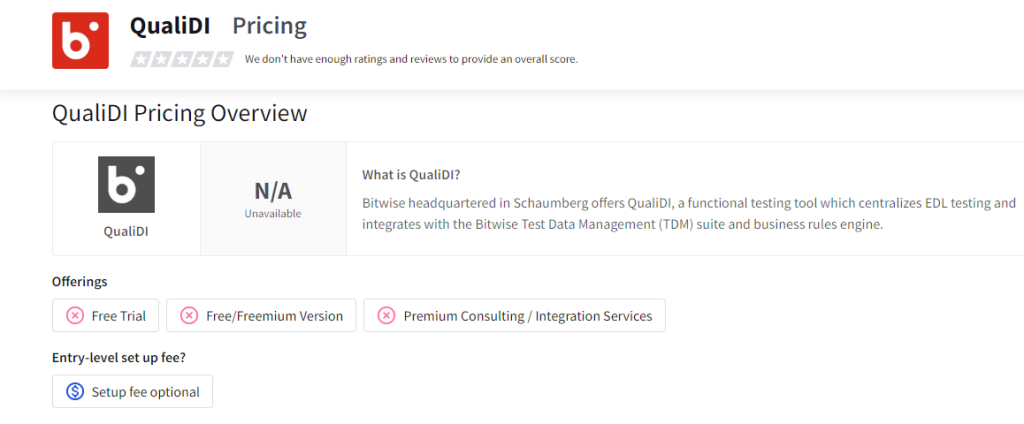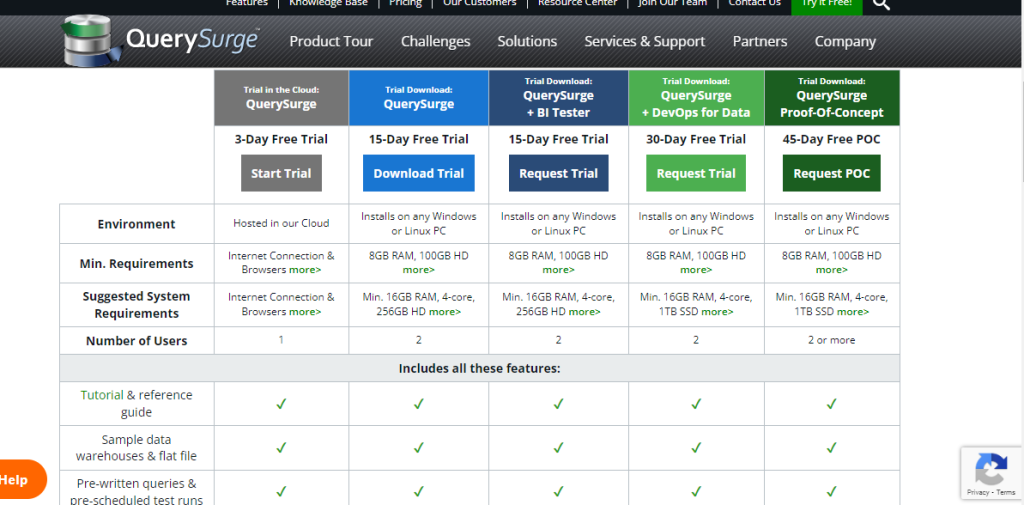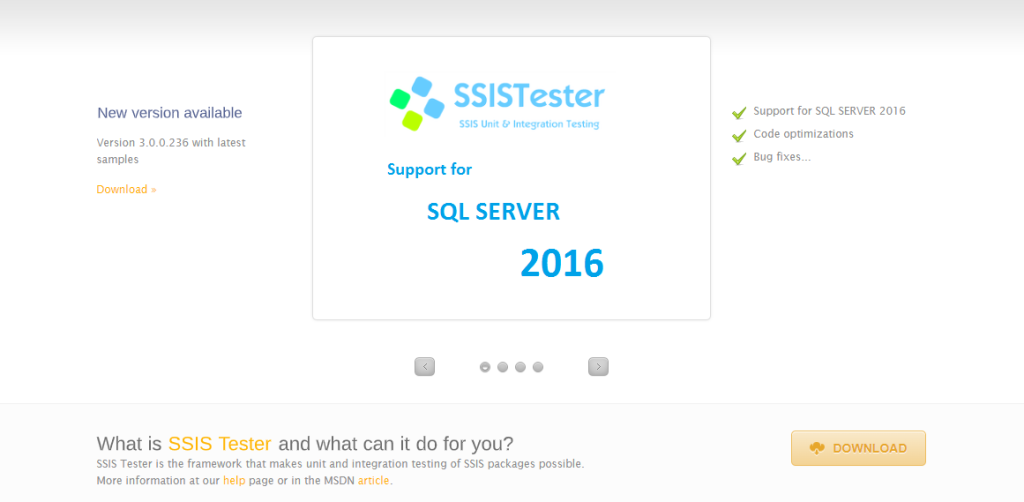ETL (Extract, Transform, and Load) is essential in the corporate sector’s data integration and warehousing process. How rapidly data may be made available for business analytics and decision-making depends in large part on the effectiveness and speed of ETL.
As a result, validating ETL systems and procedures is crucial to guarantee the data’s consistency, accuracy, and reliability.
In the contemporary digital era, businesses need the best ETL testing tools to automate their data processing processes. However, finding the best tool might take a lot of work since there are many options on the market.
Thus, this article aims to explore the top 10 ETL testing tools in 2023 to enable business owners and data analysts to make informed decisions.
What are the ETL Testing Tools?
Software programs called ETL testing tools are created to automate the testing of ETL procedures. By carrying out numerous checks, including data transformation, completeness, and quality, these tools assist in guaranteeing the correctness of the ETL process.
Test data management tools are another ETL testing tool that mimics real-world circumstances to assess ETL procedures and spot flaws.
To reduce the danger of data loss, continuous testing solutions allow for real-time testing of ETL operations and can inform the development team of any problems.
To sum up, ETL testing tools are essential for companies that rely on data processing and integration. They ensure the accuracy and dependability of the data.
10 Best ETL Testing Tools
1. RightData

RightData is a leading ETL testing tool that allows businesses to validate data quality, monitor data processes, and ensure data accuracy. It is a cloud-based platform that supports both on-premise and cloud-based ETL processes.
One of the primary reasons people use RightData is its ability to automate the ETL testing process, thereby reducing the time and effort required to test ETL processes manually.
It also provides a wide range of data validation and monitoring features, making it an ideal solution for businesses of all sizes.
Key benefits:
- The primary advantages of employing RightData are higher data quality, decreased time to market, and increased data accuracy.
- It also offers real-time data monitoring and notifications, which may assist firms in promptly identifying and resolving issues.
About RightData:
RightData was founded in 2016 by a team of experienced professionals in the data integration and analytics professionals. The company is based in Atlanta, Georgia, United States, and has over 74 (67 on RocketReach) employees.
Key Features:
- Include data profiling
- Data validation
- Data monitoring
- Data quality reporting
- It also supports ETL platforms such as Informatica, Talend, and SSIS.
Pros of using RightData include:
- Easy to use and implement
- Comprehensive data validation and monitoring features
- Cloud-based platform
- Real-time data monitoring and alerts
- Supports various ETL platforms
Cons of using RightData include:
- Limited support for non-relational databases
- Fixed support for complex data transformations
Pricing
RightData pricing is available upon request. Users can contact the RightData sales team for a customized pricing plan.
Our Review of RightData:
RightData is an excellent ETL testing tool that provides businesses with comprehensive data validation and monitoring features. Its cloud-based platform and real-time data monitoring capabilities make it an ideal solution for businesses of all sizes.
However, its limited support for non-relational databases and complex data transformations may concern some users. Overall, we highly recommend RightData for companies looking for an efficient and reliable ETL testing tool.
2. Integrate

Integrate is a cloud-based ETL testing tool that enables businesses to automate data integration and validation processes. Its comprehensive platform supports various data sources and targets, making it an ideal solution for businesses of all sizes.
One of the primary reasons why people use Integrate is its ability to automate the ETL testing process and reduce manual efforts. It also provides a wide range of data validation and monitoring features, ensuring data accuracy and consistency.
The Key Benefits:
- Using Integrate includes Improved data quality
- Reduced time to market and enhanced data accuracy
- Provides real-time data monitoring and alerts, which can help businesses identify and resolve issues quickly.
About Integrate:
Integrate was founded in 2010 by a team of experienced professionals in the data integration and analytics professionals. The company is based in Phoenix, Arizona, United States, and has over 300 employees.
Critical features of Integrate:
- Include data profiling
- Data validation
- Data monitoring
- Data quality reporting
- Supports various ETL platforms
Pros of using Integrate include:
- Comprehensive data validation and monitoring features
- Cloud-based platform
- Real-time data monitoring and alerts
- Supports various ETL platforms
Cons of using Integrate include:
- Limited support for non-relational databases
- Some features require additional configurations
- Pricing can be on the higher side
Pricing
It is available in three options. Users can contact the Integrate sales team for a customized pricing plan.
Our review of Integrate:
Integrate is an excellent ETL testing tool that provides businesses with comprehensive data validation and monitoring features. Its cloud-based platform and real-time data monitoring capabilities make it an ideal solution for businesses of all sizes. However, its limited support for non-relational databases and some features requiring additional configurations may concern some users. Additionally, pricing can be on the higher side. We highly recommend Integrate for businesses seeking an efficient and reliable ETL testing tool.
3. BiG EVAL
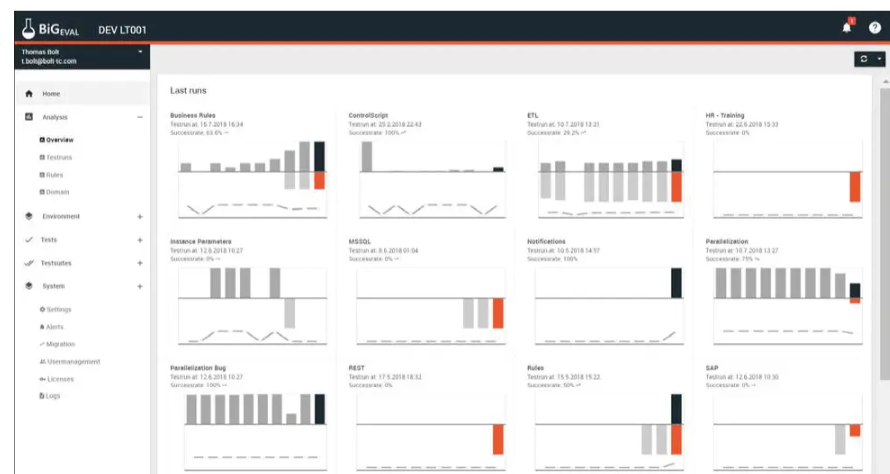
BiG EVAL is a comprehensive ETL testing tool that allows users to automate the testing of data transformations and ensure the quality of the data moving through the system. This tool is used to eliminate data errors and minimize data loss. It is used by businesses to increase the reliability of their data integration processes and reduce the risk of costly mistakes.
With BiG EVAL, users can create complex test scenarios to verify the accuracy of data transformations across different platforms and systems. It offers a user-friendly interface that simplifies the testing process, and its robust reporting capabilities allow users to quickly identify any issues or errors that need to be addressed.
About BiG EVAL:
- Founded in 2012
- Headquarters located in Kloten, Zurich, Switzerland
- Estimated annual revenue of $5 million
- Over 50 employees, according to Crunchbase
Key Features of BiG EVAL:
- Automated ETL testing
- Support for multiple platforms and systems
- Ability to create complex test scenarios
- Comprehensive reporting and analysis capabilities
- Integration with other testing tools and frameworks
Pros of using BiG EVAL:
- A high level of automation reduces testing time and minimizes errors
- Supports multiple platforms and systems
- Comprehensive reporting and analysis capabilities
- A User-friendly interface simplifies the testing process
Cons of using BiG EVAL:
- High pricing compared to some of the other ETL testing tools on the market
- The steep learning curve for some of the more advanced features
Pricing
BiG EVAL offers a variety of pricing plans to suit different business needs. The pricing model is based on a per-user, per-month basis, with additional fees for certain features. Pricing information can be obtained by contacting the sales team or requesting a demo.
Our review of BiG EVAL:
Overall, BiG EVAL is a robust ETL testing tool that offers a high level of automation and comprehensive reporting capabilities. It is an excellent choice for businesses looking to increase the reliability of their data integration processes and minimize the risk of errors. However, the steep learning curve for some of the more advanced features and the high pricing compared to other ETL testing tools on the market may be a drawback for some businesses.
4. QualiDI
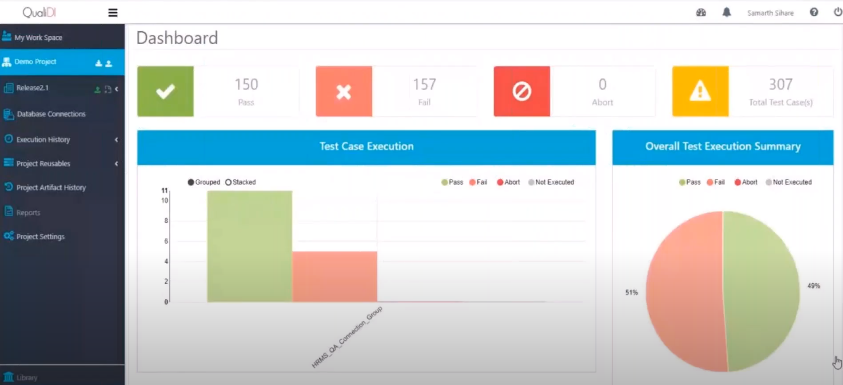
QualiDI is an advanced ETL testing tool designed to help enterprises achieve superior data quality, reduce development time, and increase software delivery speed. It is an intelligent testing solution that enables businesses to improve the quality of their data by identifying and resolving issues at an early stage.
QualiDI’s features include automated data validation, profiling, and regression testing. With its easy-to-use interface, users can easily create and execute test cases, generate reports, and analyze real-time test results.
One of the benefits of QualiDI is that it is highly scalable, making it an ideal choice for businesses of all sizes. Its intuitive user interface requires minimal training, which reduces the learning curve and accelerates the adoption process.
About QualiDI:
- QualiDI was founded in 2007 and is headquartered in Vienna, Austria.
- Tricentis has a valuation of over $1 billion and employs more than 1,800 people worldwide.
Key features of QualiDI:
- Automated data validation
- Data profiling
- Regression testing
- Real-time analysis
- Intuitive user interface
- High scalability
Pros of using QualiDI:
- Improves data quality
- Accelerates the adoption process
- Requires minimal training
- Highly scalable
Cons of using QualiDI:
- Limited support for legacy systems
- Some users may find the pricing to be on the higher side
Pricing
Users can contact the QualiDI sales team to learn more about their pricing plan.
Our review of QualiDI:
QualiDI is a powerful ETL testing tool that offers a range of features designed to improve data quality and accelerate the testing process. Its intuitive user interface and scalability make it an ideal choice for businesses of all sizes. However, its limited support for legacy systems and higher pricing may concern some users. QualiDI is a solid choice for companies looking to improve their data quality and testing processes.
5. Codoid’s ETL Testing Services

Codoid’s ETL Testing Services are designed to help companies achieve reliable, accurate, and scalable data integration through practical testing. The services use manual and automated testing techniques to validate data at every stage of the ETL process, ensuring that data is correctly transformed and loaded into the target system.
About Codoid’s ETL Testing Services:
- Codoid is an independent software testing and quality assurance company founded in 2012.
- The company is headquartered in Chennai, India.
- According to Crunchbase, Codoid has a valuation of $10 million and employs 200+ people.
Key features of Codoid’s ETL Testing Services:
- Comprehensive ETL testing services that cover data mapping, data transformation, and data validation.
- Customizable testing solutions based on project-specific requirements.
- Use industry-standard testing tools and frameworks like Selenium, Jenkins, and JMeter.
- Flexible engagement models, including project-based and dedicated team models.
Pros of using Codoid’s ETL Testing Services:
- Experienced team of ETL testing experts skilled in manual and automated testing techniques.
- High-quality testing services ensure accurate and reliable data integration.
- Customizable testing solutions that can be tailored to meet project-specific requirements.
- Use of industry-standard testing tools and frameworks that ensure best practices are followed.
Cons of using Codoid’s ETL Testing Services:
- Codoid is a service-based company; pricing for ETL testing services can vary depending on project requirements.
- As with any outsourced service, communication and coordination challenges may exist when working with a remote team.
Pricing
Unfortunately, Codoid’s pricing is project-based and varies depending on project requirements, so there is no standard pricing.
Our review of Codoid’s ETL Testing Services:
Overall, Codoid’s ETL Testing Services provide a comprehensive and flexible solution for companies looking to ensure reliable and accurate data integration through practical testing. The company’s experienced team of ETL testing experts, combined with their use of industry-standard testing tools and frameworks, makes them a strong contender in the ETL testing market. However, as with any outsourced service, pricing and communication challenges may concern some companies.
6. DataQ

DataQ is a comprehensive ETL testing tool that helps businesses ensure the quality of their data pipelines. The platform is designed to detect and eliminate errors and inconsistencies in the data during the ETL process. DataQ supports various sources and formats, including structured, unstructured, and semi-structured data.
One of the main benefits of using DataQ is that it allows users to automate the entire ETL testing process, significantly reducing the time and effort required to identify and fix data issues. The platform also provides real-time data quality monitoring, giving users greater visibility into the status of their data pipelines.
Key features
- Data profiling allows users to quickly and easily analyze data quality, identifying patterns and trends that may indicate inconsistencies.
- The data validation feature checks data quality against a set of predefined rules, ensuring that it meets specific quality standards.
- Data comparison allows users to compare and synchronize data across multiple sources and formats.
Pros of using DataQ:
- Include its ease of use and automation capabilities, saving businesses time and resources.
- The platform’s support for various data formats and sources makes it a versatile tool for testing data quality.
Cons of using DataQ
- Due to its pricing, it may not be suitable for small businesses or organizations with limited resources.
Pricing
There’s a free version available. The other model is based on a quote system, requiring interested parties to contact the company directly for pricing information.
Our Review of DataQ
Overall, DataQ is a powerful ETL testing tool that can help businesses ensure the quality and integrity of their data pipelines. Its robust features, automation capabilities, and support for various data formats make it a valuable tool for businesses of all sizes.
7. iCEDQ

iCEDQ is a data validation and ETL testing tool that helps organizations automate the data validation process and minimize manual effort. It provides a unified data testing platform covering everything from data integration testing to data quality checks and monitoring.
About iCEDQ
iCEDQ was founded in 2013. It is headquartered in Nagpur, India, and the USA and has around 90 employees.
Key Features of iCEDQ
- Automated data testing
- End-to-end data validation
- Extensive support for various data sources
- Real-time data validation
Pros of using iCEDQ
- Easy to use
- Comprehensive solution for data validation covering various data sources and data validation scenarios.
- Real-time data validation helps organizations detect and fix data issues as soon as they occur.
- Integration with other tools such as ETL, BI, and data governance tools.
Cons of using iCEDQ
- The high learning curve for new users due to its extensive features and capabilities.
- Expensive tool compared to other ETL testing tools.
Pricing
The pricing for iCEDQ varies based on the customer’s specific requirements. Interested users can contact the iCEDQ team for a customized quote.
Our Review of iCEDQ
iCEDQ is a robust data validation and ETL testing tool with extensive features and capabilities. It provides a comprehensive solution for end-to-end data validation, covering various types of data sources and data validation scenarios. iCEDQ’s real-time data validation helps organizations detect and fix issues as soon as they occur, improving overall data quality. However, the tool can have a high learning curve for new users and is relatively expensive compared to other ETL testing tools.
8. QuerySurge

QuerySurge is an automated ETL testing tool designed for data warehousing and integration projects. It provides end-to-end testing capabilities for data validation, integrity, and quality. QuerySurge is used by organizations across various industries, including financial services, healthcare, and telecommunications.
About QuerySurge
- Founded in 2010
- Headquarters: New York
- Number of employees: 51-100
Key features of QuerySurge
- Test design and execution
- Metadata management
- Data comparison and validation
- Data profiling and analysis
- Report generation and scheduling
Pros of using QuerySurge
- User-friendly interface for designing and executing tests
- Integration with popular ETL tools, including Informatica, Talend, and IBM InfoSphere DataStage
- Ability to test data across multiple platforms, including databases, data warehouses, and Hadoop
- Real-time monitoring and alerting for test results
- Comprehensive reporting and documentation of test results
Cons of using QuerySurge
- The steep learning curve for new users
- Limited support for NoSQL databases
- No free trial version is available
Pricing
Our review of QuerySurge
Overall, QuerySurge is a powerful ETL testing tool offering a comprehensive suite of data validation and quality features. Its integration with popular ETL tools and ability to test data across multiple platforms makes it versatile for data integration projects.
However, its steep learning curve and limited support for NoSQL databases may be drawbacks for some users. The lack of a free trial version may also be a barrier for organizations looking to test the tool before committing to a purchase.
9. SSISTester

SSISTester is a popular ETL testing tool for testing Microsoft SQL Server Integration Services (SSIS) packages. It helps perform the SSIS packages’ functional, regression, and integration testing.
The tool is designed to identify issues in the data flow by validating the data at each step and ensuring that the data is transformed correctly between the source and destination.
Key features of SSISTester:
- Supports both on-premises and cloud-based SSIS packages
- Provides detailed error reporting
- Allows for custom validation rules
- Offers integration with Visual Studio
Pros of using SSISTester:
- Easy to use and set up
- Provides comprehensive reporting and error handling
- Supports different types of data sources
- Offers integration with Microsoft Visual Studio
Cons of using SSISTester:
- Limited support for other ETL tools apart from SSIS
- Requires some knowledge of SQL Server Integration Services
- May not be suitable for large-scale testing
Pricing
SSISTester is publicly available.
Our review of SSISTester:
SSISTester is a useful tool for testing SSIS packages and ensuring they function correctly. Its comprehensive error reporting and custom validation rules make it easy to identify and fix any issues in the data flow.
However, the tool is limited in supporting other ETL tools and may not be suitable for large-scale testing. If you are working with SSIS packages, SSISTester is worth considering as an ETL testing tool.
10. TestBench
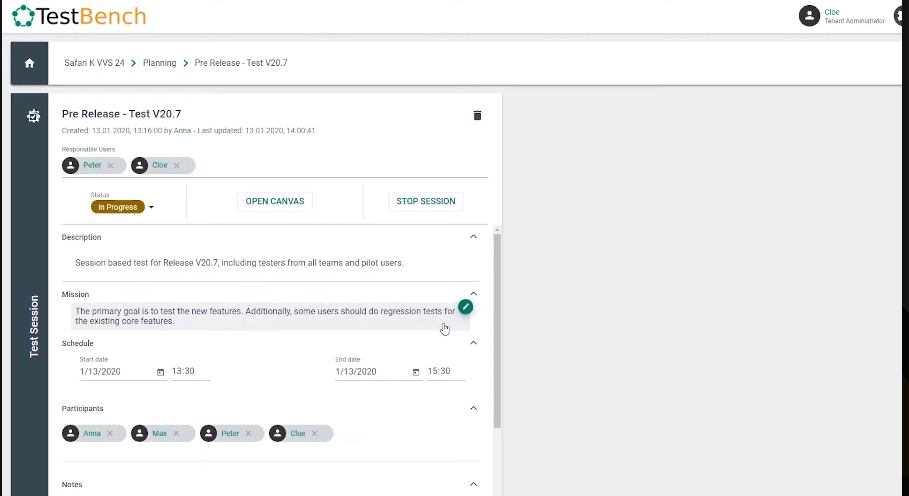
TestBench is an enterprise-level ETL testing tool that offers a complete end-to-end testing solution for data warehousing and ETL processes. It provides a comprehensive suite of testing functionalities, including test planning, test case creation, execution, and reporting.
About TestBench:
- TestBench is developed and maintained by Original, a privately held company based in Dublin, Ireland.
- Origina was founded in 2014 by Tomás O’Leary and Rowan O’Donoghue.
- As of 2023, Origina has a valuation of $200 million and employs over 300 people globally.
Key features of SSISTester:
- Test planning and case creation
- Test execution and scheduling
- Test automation
- Data validation and verification
- Integration with popular ETL tools
- Advanced reporting and analysis
Pros of using TestBench:
- Comprehensive ETL testing capabilities
- Easy-to-use interface
- Integration with popular ETL tools like Informatica, IBM DataStage, and Microsoft SSIS
- Advanced reporting and analysis functionalities
- Excellent customer support
Cons of using TestBench:
- Relatively expensive compared to other ETL testing tools
- Limited community support and resources
- Steep learning curve for beginners
Pricing
The pricing starts from $29.00 per month with a flat-rate model. It also comes with a free trial which you can make use of.
Our review of TestBench:
Overall, TestBench is a powerful ETL testing tool that offers a complete end-to-end testing solution for data warehousing and ETL processes.
Its comprehensive suite of testing functionalities, integration with popular ETL tools, and advanced reporting and analysis functionalities make it an excellent choice for enterprise-level organizations.
However, it’s relatively high pricing, limited community support, and steep learning curve may make it less suitable for smaller organizations or beginners.
How can you Select the Best ETL Testing Tool?
When selecting an ETL testing tool, it is essential to consider various factors, such as its features, compatibility, cost, and support. Here are some guidelines to help you choose the best ETL testing tool for your organization:
Determine Your Requirements:
Before selecting an ETL testing tool, you must define your requirements, such as the data volume you need to process, your data quality goals, and your testing frequency. This will help you choose a tool that fits your organization’s needs.
Assess the Features:
Once you have determined your requirements, you should assess the features of the ETL testing tool. Some essential features include automation capabilities, data profiling, data comparison, and metadata management.
Consider Compatibility:
It is essential to ensure that the ETL testing tool is compatible with your ETL tool and the databases you use. Compatibility issues can lead to integration problems, data loss, and errors.
Evaluate Support and Documentation:
Good support and documentation are crucial when selecting an ETL testing tool. Ensure that the tool’s vendor provides adequate support, training, and documentation to assist you in using the tool effectively.
Compare Costs Consider:
the cost of the ETL testing tool and ensure that it fits within your organization’s budget. Some vendors may offer free trials or community editions that you can use to assess the tool before purchasing it.
Frequently Asked Questions – FAQs
What is etl testing?
ETL testing is a type of software testing used to ensure the accuracy and reliability of data as it is moved from one source to another destination via an ETL (Extract, Transform, Load) process. It involves verifying data completeness, correctness, consistency, and integrity.
Which are the best etl testing tools?
There are many ETL testing tools available in the market, each with its own unique features and capabilities. Some of the most popular ones include Informatica Data Validation Option, Talend Open Studio, QuerySurge, BiG EVAL, iCEDQ, TestBench, and SSISTester.
Why etl testing is required?
ETL testing is required to ensure the quality of data being moved through the ETL process. It helps identify data quality issues such as truncation, loss, type mismatch, and integrity issues. Proper ETL testing ensures that the data loaded into the target system is accurate, consistent, and complete.
How to do etl testing?
ETL testing can be performed using manual and automated testing methods. The testing process includes data completeness testing, data accuracy testing, data transformation testing, and data integrity testing. ETL testing tools such as Informatica Data Validation Option, Talend Open Studio, QuerySurge, BiG EVAL, iCEDQ, TestBench, and SSISTester can simplify the testing process and improve testing efficiency.
Conclusion
Selecting the best ETL testing tool for your organization is crucial to ensure the accuracy and reliability of your data. You can choose the tool that best fits your organization’s needs by considering your requirements, assessing the features, evaluating compatibility, and comparing costs. Remember to prioritize good support and documentation to ensure you can effectively use the tool to achieve your testing goals.
- 5 Best DevOps Platform and Their Detailed Guide For 2024 - December 26, 2025
- Top 10 Cross Browser Testing Tools: The Best Choices for 2024 - October 28, 2025
- 5 Best API Testing Tools: Your Ultimate Guide for 2024 - October 26, 2025



